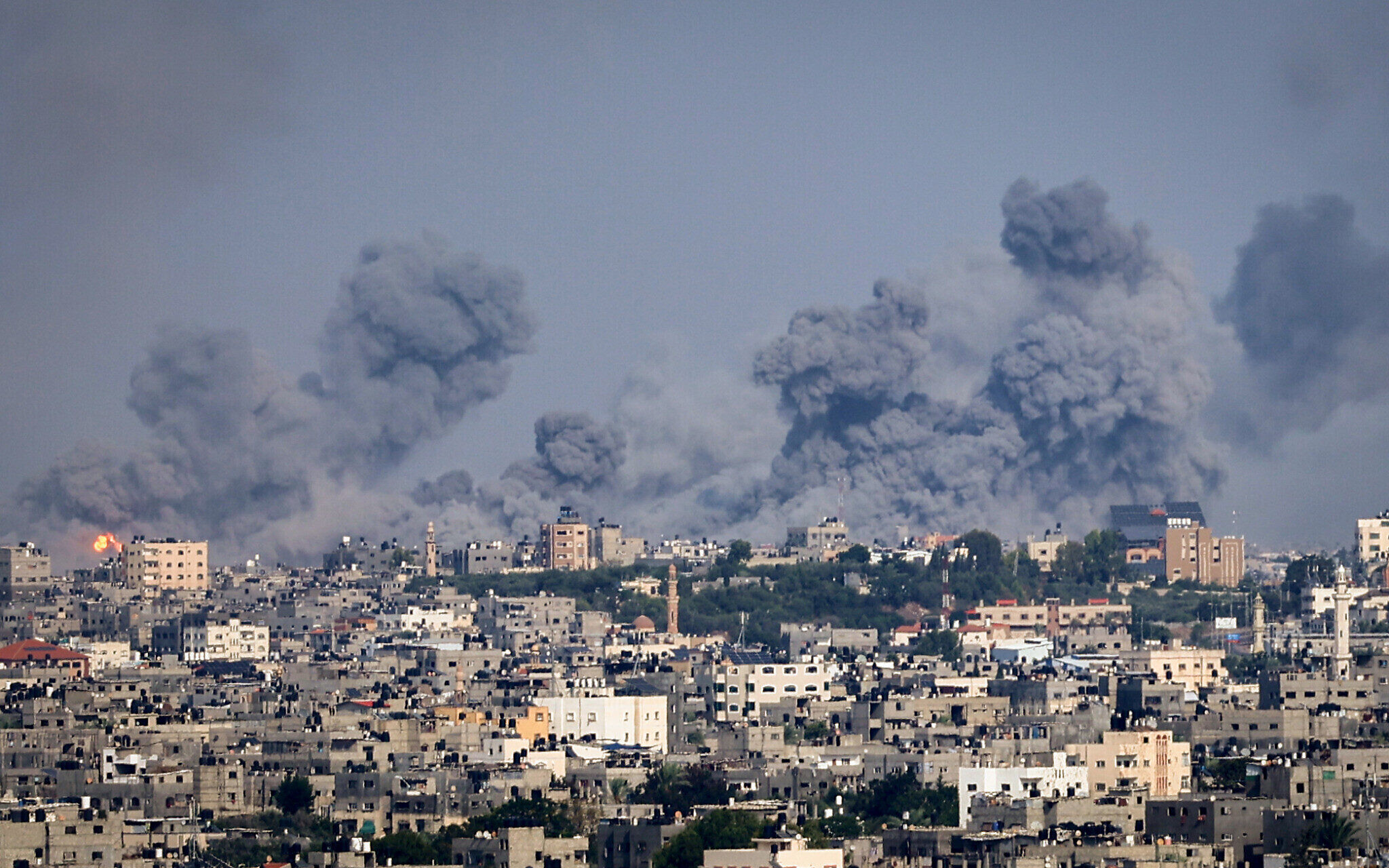
Could Biden stop Netanyahu’s plans attack on Rafah ?
Israel entered Rafah, a city that marks Gaza’s southern border crossing with Egypt, on May 7, 2024, launching a military offensive that the U.S. and others have cautioned Israel not to pursue.
President Joe Biden warned Israeli Prime Minister Benjamin Netanyahu on May 6 against expanding the Gaza war into Rafah, indicating that this could lead to a shift in U.S. policy on Israel. A divergence over how to handle the war in Gaza prompted the U.S. to place a hold on shipping U.S.-made bombs to Israel.
Rafah is one of the only places in Gaza that has not been destroyed in the Gaza war. It is also a refuge for more than 1 million Palestinians, about half of whom are children, who have been displaced from their homes elsewhere in Gaza because of the conflict.
Is the US’s warning to Israel typical for their diplomatic relationship?
This is certainly not without precedent. There have been many U.S. presidents and secretaries of state who have been frustrated with Israel over something, going back to at least the 1973 war between Israel and a coalition of Arab countries. The U.S. pressed Israel to adhere to a U.N. Security Council cease-fire resolution then – one sponsored by both the U.S. and the Soviet Union – but Israel, for a time, refused.
Other presidents have been in the position of saying, “Do this,” and the Israeli comeback is always, “Not quite yet.” So this episode, while very blatant, is hardly unique.
Countries are allies because their interests overlap but are not identical. U.S. history is littered with allies that managed to do what they wanted and not what we wanted them to do.
Years ago, when I was at the International Institute for Strategic Studies in London and would talk about the difficulties of dealing with allies, let alone enemies, a wonderful researcher focused on Israel would comment: “So who ever said it was easy to be a superpower!” Biden would sympathize with that remark.
As Israeli politics and leadership have drifted so far to the right, a lot of the people in Israeli Prime Minister Benjamin Netanyahu’s coalition don’t really care about the U.S. and what it wants. Netanyahu is now very dependent on the far right for his own political survival, so he is likely to listen to his right-wingers, not to the U.S.
So, how much political leverage does the US actually have over Israel?
I think at this point, it is really time for the U.S. to say that it is going to call arms deliveries to Israel into question. Israel is going into Rafah after the U.S. specifically said to please not do this without making sure you can keep most Gazans safe. This does not necessarily require a red line to be drawn – which typically is not very effective – but a clear warning that this decision will influence arms transfers in the future.
The other problem is that while you might assume that Israel is considering how to govern Gaza after the war, there is still no clear, public idea of what the endgame is. How is this supposed to end?
Meanwhile, this escalation is bound to continue polarizing American public opinion on the issue, which is probably an additional reason for the U.S. to try to get the war to stop as soon as possible.
The US is reported to have decided to place a hold on shipping bombs to Israel. Can this influence Israel’s wartime behavior?
It probably doesn’t matter materially in the short run, but psychologically in the longer run, if arms were stopped that would make a difference. Israel is the largest recipient of U.S. foreign aid and has received more U.S. military assistance than any other country since World War II. By early March this year, the U.S. had made more than 100 arms shipments to Israel since Hamas’ attack on Israel on Oct. 7. 2023.
Israel is now risking an escalating confrontation with Hezbollah, a militant group in Lebanon, in the north. It seems to be in Israel’s interest to try to not expand conflict but to limit it.
Several blue armchairs and hospital equipment are in a messy looking room, with buckets and plastic medical materials on the ground.
Given this, why do you believe Israel is so intent on going into Rafah?
Across the political spectrum in Israel, there is a sense that invading Rafah has to be done, it has to be finished, in order to eradicate Hamas. The issue is we never knew exactly what finishing means. And most of us in the national security business think there is no way Israel can totally eradicate Hamas.
Before October 2023, Hamas was never popular in Gaza because it didn’t properly govern, but the Israeli attack has made it more popular, especially on the West Bank, because it stood up to Israel and put the issues of the Palestinians back on the agenda after the world, including the Arab world, had forgotten it.
The idea of eradicating Hamas seems to be still where Israelis across the spectrum are focused. Therefore, if the remaining Hamas leaders were thought to be in Rafah, then so be it, they are thinking, on to the attack.
What are the national security implications of Israel going into Rafah?
It does create more instability and increases the risk of a widening war. Even if Iran doesn’t respond, it is likely that some of its proxies, like Hezbollah, will do something that could deepen this conflict. We should use the term proxies carefully, because the U.S. knows from its own experience that you cannot necessarily control proxy governments or militias. But it seems like this is a kind of invitation for at least Iran’s proxies to escalate the conflict.




No comments:
Post a Comment
Note: Only a member of this blog may post a comment.